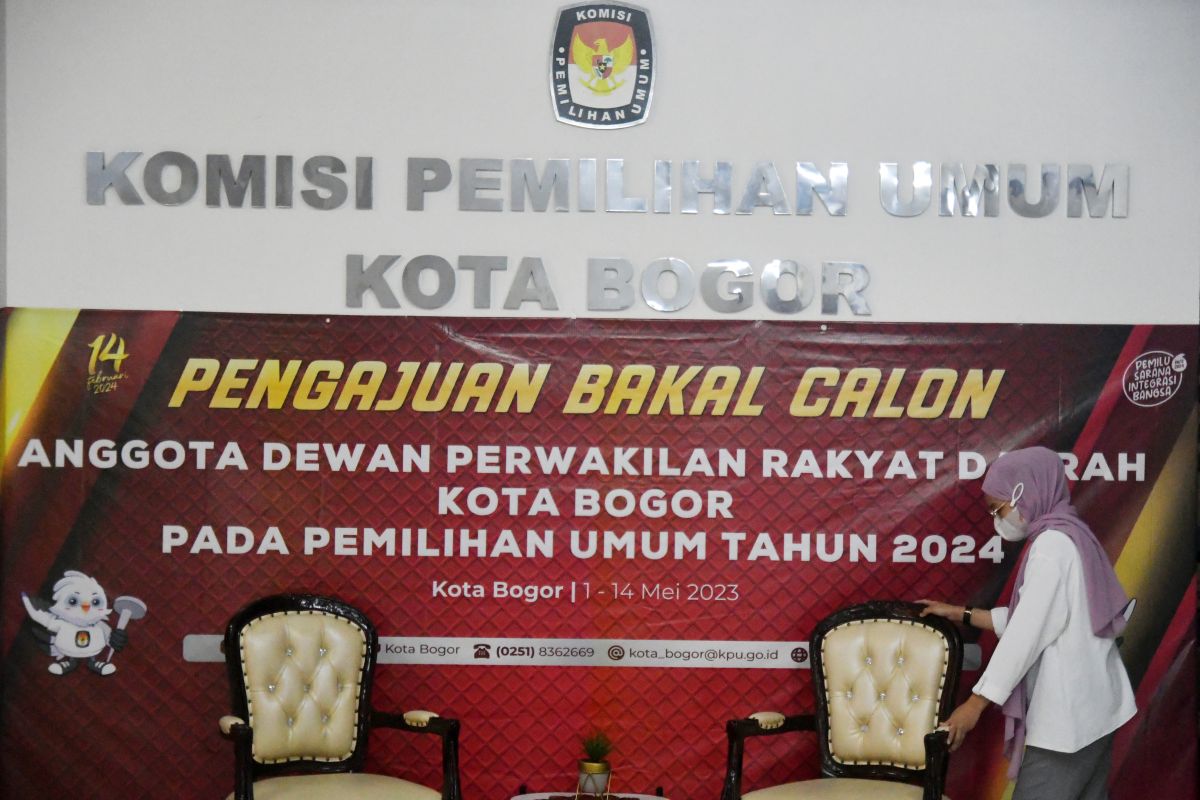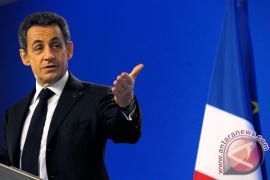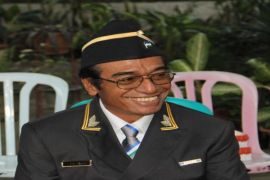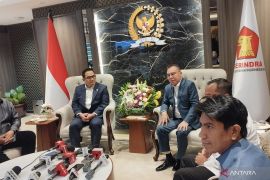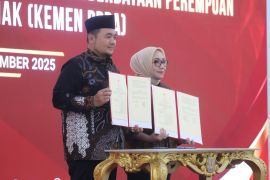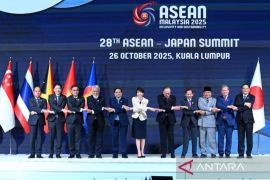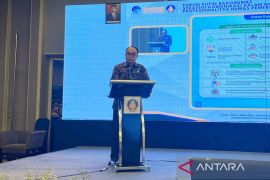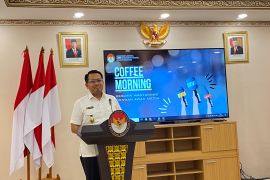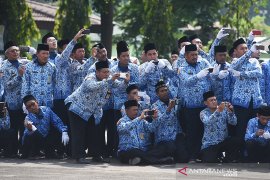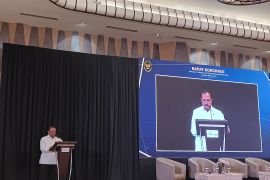Pemilu is also the only practical opportunity for the people to get directly involved in determining the country's direction for the next five-year period.
This time, the preparation stages for the 2024 simultaneous elections have been underway since the General Elections Commission (KPU) announced the 2024 Pemilu on June 14, 2022, exactly 20 months before the election D-Day on February 14 next year.
So far, however, the atmosphere of a democratic feast has only been restricted to specific circles, such as committees, the government, political parties, lawmakers, executive candidates, and their supporters.
Generally speaking, the atmosphere has not been widespread, as the broader population has only been directly involved in the beginning stage of the feast, specifically the matching and researching of voter data.
Moreover, the stage involved verification by the election committee through door-to-door visits to each household to confirm the vote list.
In fact, the sense of a feast concerning the Pemilu will only be felt by the broader society when the stage of nominating and determining the legislators, president, and vice president candidates begins— not to mention when it comes to their respective electoral campaigns.
Only then will the entire country feel the vibrant festivities. That's when people will start to support the candidates they trust will represent their voice and fight for their interests in the next half-decade.
However, there will always be a potential for support polarization by sympathizers and the people toward the candidates they desire to elect as the country's leaders.
The phenomenon has been witnessed on different occasions and is not unique to Indonesia. It is a thing in other parts of the globe as well. This has become commonplace as every individual is constitutionally guaranteed to exercise their right to support their candidates.
But in terms of impact, it serves more as a dangerous obstacle rather than a positive impetus. This mainly refers to the trend of polarization that tends to be tainted by the fragmentation of supporters, sympathizers, and the people.
They tend to show tremendous support through every means possible, from making the most of primordial and identity politics to conducting negative and even 'black' campaigns.
All those means are taken to justify a single end -- ensuring that their candidates come out as victors.
Dr Panju Suminar, a political expert and an academic at the University of Bengkulu, says that polarization during the elections cannot be avoided entirely.
"But the danger it creates can be anticipated. Commitment from all related parties is paramount to free Pemilu from such a phenomenon that may endanger the nation and the country," he adds.
Related news: KPU ready to accept legislative candidates' registration for elections
Need for a multi-party commitment
Besides the government and the related committees, some other actors, ranging from political parties, electoral candidates, elites, figures, and campaign teams, to sympathizers, need to pledge their commitment to realizing a feast-like Pemilu for the people.
So far, candidates for parliamentary members, president, and vice president have refrained from utilizing any negative means or divisive rhetoric.
The election participants, particularly those running for the country's top spot, usually advertise their capacity, capability, and quality by presenting a solid program, vision, and mission.
Problems occasionally arise from the lower levels, from their campaign teams, sympathizers, and so-called buzzers. They go their way to support their candidates without being fully monitored by their candidates.
Election campaign teams and sympathizers can sometimes take measures that can spark societal division. Resorting to identity politics, primordial politics, 'black' campaigns, and other efforts to attack opposing candidates may cause uproar and build a hostile atmosphere.
With that in mind, a strong commitment is needed to prevent polarization from bubbling up and encourage all parties to run campaigns more ethically and politely by focusing on advertising their candidates' vision and missions to draw the public's attention.
This commitment must start now before the election candidates are officially determined and the campaigning stage begins. It should be made at the earliest to entirely suppress any potential for polarization.
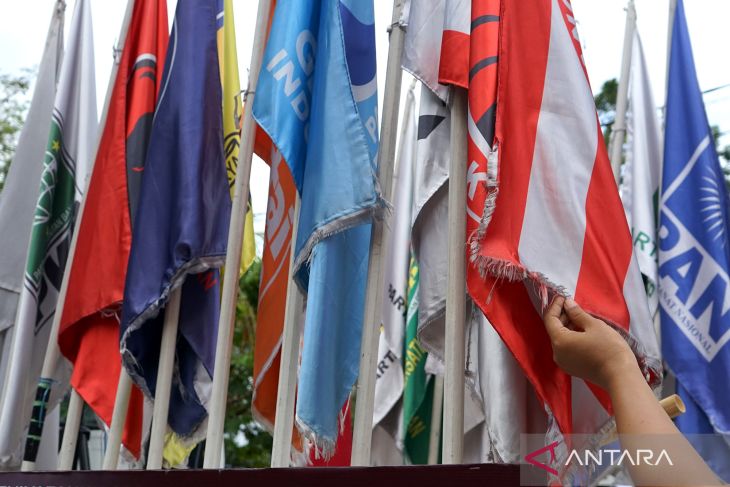
Preventive measures
According to University of Bengkulu academic Dr. Sugeng Suharto, the potential for polarization can indeed be suppressed. The Presidential elections would be better with more than two pairs of candidates, he says.
Suharto believes that with a minimum of three pairs, the public's voice during the election would be more divided and heterogeneous, and it will translate into a higher level of tranquility at the grassroots—at least in the first round.
A two-round presidential election will further suppress the potential for polarization. In the second round, when only a pair of candidates are left, polarization may come up as the public's support will form two axes.
However, the potential danger will not be too dire as some of the support would initially belong to the other candidate pairs that did not qualify for the second round.
In other words, when the losing candidates' supporters shift their support to those who manage to qualify for the next round, they will not provide as fierce support as that provided by fanatical and extreme sympathizers.
Additionally, the time span between rounds should be made shorter so that the risk of division from polarization is not too high.
For candidates, the most important thing is to be committed to presenting a polite and responsible political stance and to continue to showcase their programs, visions, and missions within the corridor.
Political parties must also take responsibility for their members and sympathizers so that they do not do anything that could erode the meaning of the feast of democracy.
Elites, politicians, and role models should help build positive communication and refrain from delivering statements and opinions that may cause division and uproar in society.
Another vital thing that needs to be maintained is a healthy digital space, which can help suppress the potential for negative and smear campaigns by eliminating the spread of hoaxes.
Such dirty measures are usually resorted to by buzzers to attack candidates at the "orders" of certain parties.
In order to ensnare and provide a deterrent effect to perpetrators of such actions, it is necessary to examine the implementation of the ITE Law, Dr. Suminar says.
Implementing the ITE Law could help ensure that digital channels remain free from content that may trigger polarization, which, in turn, will divide the nation during the elections.
The Ministry of Communication and Information (Kemenkominfo) is committed to preparing preventive measures to maintain the digital space's decorum better. This is done by taking notes from previous elections that sparked social friction.
Prevention can be done in the form of literacy and moderation and within a content-related special network.
Kemenkominfo and other related ministries and agencies are also considering the need to form a particular unit to safeguard the digital space through coordination.
Each ministry and agency that wields adequate equipment and cyber units at its disposal will later work in close coordination to provide a healthy digital space for the smooth running of the elections.
The final responsibility will rest on the people as voters. People should not be easily instigated by dirty political maneuvering.
Voters should make up their minds by gauging the candidates' values from the programs, visions, and missions they present instead of any opposing sides that emerge during the 2024 Pemilu.
Related news: Bawaslu presses for monitoring election candidate registration
Translator: Boyke Ledy W, Tegar Nurfitra
Editor: Bayu Prasetyo
Copyright © ANTARA 2023
